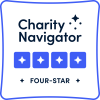Yesterday at the William S. Baer School, I had the privilege to be part of a Magical Experiences Arts Company (MEAC) play Transformation through Theater. It was performed by MEAC founder Joanne Lewis-Margolis with twelve Baer students. Baer is a Baltimore City Public School that serves medically fragile children with multiple disabilities who live throughout the city. The building and its courtyard are full of art and music. At a time when we need it, the school should be a source of pride and inspiration for all Baltimore residents. MEAC is equally as inspiring and presents its original 21 plays to over 500 students with multiple severe disabilities, severe emotional disturbances, and adults in the last stages of Alzheimer's. Their play, Transformation through Theater, draws inspiration from a variety of sources including Diary of a Teenage Refugee by Amira and Peter and the Wolf.
To say that MAEC met the children at the Baer School where they are is an understatement. Although many of the students are nonverbal and/or use devices to aid with mobility, they were fully engaged with the dance, stories, and music through their own sound, movement and the eagerness of their eyes or bodies to connect. More than presenting a show, the artist and participants journeyed through other children’s stories of pain and victory with the lasting quote from Amira,“You can be brave and frightened at the same time.”
We have known for some time that arts can promote healing. They also provide opportunities to express respect and value individual humanity. In a therapeutic or healthcare setting the arts can be transformative.
“Medicine has always had difficulty in defining its terrain, situated somewhere between the sciences and the humanities. The recent trend has been to accentuate its scientific underpinnings: detachment and objectivity in search for universal truths about disease. While this approach has yielded impressive diagnostic and therapeutic dividends, it has often exacerbated the suffering of patients by further alienating and isolating them. The arts serve as powerful corrective to this trend, emphasizing the complexity of human experience and the needs of sick people over and above surgery and treatment. The arts help remind medicine of its humanistic origins in healing as it seeks to provide the most up-to-date scientific care for its patients.” -David Biro, MD SUNY Health Science Center Downstate and author of One Hundred Days: My Unexpected Journey from Doctor to Patient
The field of arts in healthcare is beginning to be better understood and accepted as an important tool for healing. If you are interested in learning more, read the Americans for the Arts 2009 State of the Field: Arts in Healthcare Report.
Now that spring has sprung, GBCA’s events and activities are gearing up. The next Third Friday Equity Conversation is coming up on April 19th. Don't miss out!
All my best,
Jeannie


